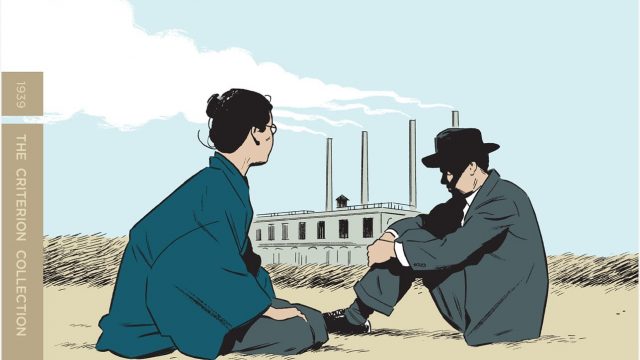“Life’s tragedy begins with the bond between parent and child.”
The Only Son, Japanese director Yasujirō Ozu’s first talkie (and 35th film) u, opens with this brief, unattributed axiom. A brief prologue introduces us to Ozu’s famous style and tone— shooting subjects head-on, looking directly into the camera to confront the viewer with their emotional culpability. But we also see a parochial pre-war Japan where a mother (Choko Iida) cannot afford to send her son to middle school. A visit from the elementary school teacher reveals both the son’s lie about his future and the impossible but important task of adapting to a world that will change Japan very, very soon.
So begins a tale of a simple drama — a mother gives her last remaining days of youth to support her son, and after graduating college, he doesn’t respect her enough to tell her when he gets married or when he has a child. His justification is that he hasn’t become successful enough as a businessman — he is living in shame, but his mother is far less hurt by his fiscal “lack of success” and more by the man he has become.
Ozu’s films are so small as to almost appear symbolic. It’s easy to try to read each of his characters as symbols because they are so connected to archetype and questions of modernity, propriety, and self-sacrifice. The temptation easily arises to exaggerate this thematic relevance to geopolitics given the film’s release in 1936, when wartime Japan was making promises it cannot fulfill to the people who send their children into its machine. But I do not think this is Ozu’s mission — after being conscripted and forced to serve in the military for two years following this film’s release, Ozu returns to making family dramas about simple deceptions that lead people to hurt one another and to eventually find ways to bring one another some joy. This is Ozu’s thesis, and one that does not change with the war — he wants to study how people in close relationships come together and yet compartmentalize their shames and misdeeds.
This is hardly the first talkie Japan had seen — the country had been making them for five years, while Ozu kept making acclaimed silents like I Was Born, But…, Woman of Tokyo, and Tokyo Chorus. But as Ozu’s first, it’s hard to believe that he already had such incredible command of his actors. The dialogue feels incredibly natural, even through the restraint of social custom. A scene where a family friend’s second son is fake-crying to get a candy — the friend’s laughter, and Iida’s earnest lack of desire to shame him in any way, is beautiful in how every character is simultaneously restrained and yet naturalistic.
Iida had attained fame during the silent era, her breakout roles coming in 1923, and she had worked with Ozu on multiple films prior to The Only Son. Together, they create a lead performance that stands the test of time — Iida plays so many of her most pained scenes in quietude or outright silence. Iida plays the majority of the film in old-age makeup, but she communicates Tsune’s age best is in her physical posture. Her performance is astoundingly lived-in and considered, especially for a woman who would live into the 1970s.
And then, Shinichi Himori as the adult son Ryosuke — he was often cast for his ability to play earnest, heartfelt reality, but here he plays against type as a sort of Damon-esque icon of clean-shaven, well-groomed, mediocrity, who always seems like he’s campaigning for president. In the scene in which he reveals that he is married,he does not drop a beat of the facade, just acts as though this is something to simply be accepted. He’s not a villain, but he is cruel.
In an incidental scene, Ryosuke attempts to impress his mother by taking her to a talkie, Willi Forst’s Leise flehen meine Lieder, maybe better known as some film about Schubert. Tsune cannot stay awake as a young Schubert chases a beautiful blonde young woman through a field of reeds. It looks like Ozu, but the characters are shot and lit romantically, and the implication of sex is direct. Where this scene plays as metacommentary, again, easy to abstract, it succeeds at showing a son trying to give his mother a good night and not understanding her enough as a person to actually do so. The next evening, Tsune says they don’t need to go out any more — “You’ve already spent so much money,” she says. The film, full of truths, offers a glimpse at how to be better to one another, even as the characters can’t give one another what they want. By the time you reach the shot drawn on the film’s Criterion cover, of a mother and son sitting on the ground outside a city incinerator, the tension has built up enough to give their laying things bare its full impact.
“The Only Son” is currently streaming on The Criterion Channel. Alex Lovendahl is currently podcasting at Maintained Madness – Pop Culture Podcast, where you can hear him discussing animated films.


